The Cornell Lab Bird Academy › Discussion Groups › Nature Journaling and Field Sketching › Focusing on Your Subject – Blind Contour Drawing
-
Great and interesting assignment. I drew the red-spotted Newt and found that I wanted to look at what I was drawing. I didn't. My image was very similar but a bit heavier. Drawing this way makes you really focus on the line in the image.
-

-

-
I’m impressed with the flower accuracy!
-
-

-

-

-
Each new image was a slight improvement in gestures; I realized that every time my hand accelerated, it created a distorsion on width or length. Meeting the starting point, or not, showed clearly how far my angles went too wide or narrow when changing direction. Trying to imagine a clock inside my head to guide me on the angles changes. Lots of practice needed still, but happy to see that my hand is starting to connect to my eyes. .



-

-
 I was quite pleased with this.
I was quite pleased with this. -
Great exercise! Hard to connect back to your starting point, easy to cross over your lines and difficult to capture the proportion of large sections. I found it easier to capture detailed areas more accurately. With the Springbok, I started with the mouth of the head and was able to capture the antlers with some detail. I thought I captured the thickness of the body pretty well and got the height of the front legs off the ground compared to the back legs pretty good.

-
If Blind contour drawing isn’t a lesson in humility, I don’t know what is. I’m looking at pictures of beautiful creatures, ones I have loved since I was young, and trying to capture their form on a page while not looking at the page. I thought my sketching experience couldn’t get much worse until today. I’m glad the instructor told us we would need to be able to laugh at ourselves and our drawings because that’s about all I could do. I found that I could focus on my subject and see the details of the skin, feathers, fur, and shapes, but it was very difficult to keep myself from looking down. I had to tell myself not to do it several times despite wanting to peak so badly. I was able to hold off until the end and then look at my abstract drawings. When I showed my husband, he could guess at the possible species: lizard, chicken, kelp, bull, and Ireland he stated. Newt, sunbird, bird of paradise, springbok, and cypress tree, I replied. It was simultaneously a fun and frustrating experience:) I've included a picture of my Green-tailed sunbird/chicken blind contour drawing for your entertainment:)

-
In each of my attempts I could see that what I drew had a passing resemblance to the actual picture. My feeling of distance/length was a little off and I crossed lines a couple of times especially on the Springbok. Much better than I thought I was going to do.
-
Having trouble maintaining a sense of scale... and always fail to end up back at the starting point. But certainly a worthwhile exercise. The springbok was the hardest probably due to the open areas that didn't fit into the approach.



-
I think your springbok is impressive as are the others.
-
-
Some were better than others. The perception of sizes is a big one. The flower and newt were better than the Sunbird and Sprinbok. The Springbok body too thick and the neck head to small, several rub outs for this one.
-
I tried left to right, right to left, different starting points and even mentally counting how long a segment was in relation to others....but still had lackluster results. Definitely something to work on. the biggest challenge was to have the start and end points meet.
-

-
I admit at first I was a bit skeptical about the exercise, until I heard WHY it was useful - to learn to trust the relationship between your eye and your hand. I was actually surprised that most of these were discernible shapes! I wish they hadn't overlapped but that's a purely aesthetic complaint lol. I found this really helpful actually!

-
It was intimidating, but each time I did better than I thought I’d done. That was interesting. And encouraging. I actually want to try to do it some more … as a practice. Yes, I surely do think it helped me stay focused on my subject. I even found that I was speaking aloud to myself ... to guide myself along. And that seemed to help.
-
Your presentation helped me a lot! I tried contour drawing eons ago and didn't really get it. But now that I've been involved with cataloging oak tree species I find that the contour drawing has sharpened my observation skills in bark patterns and leaf forms. Thanks!
-
This exercise was really challenging! It did help me stay focused, but judging lengths, sweeps, curves of the continuous line to end up back where I started just didn’t happen. It’ll be interesting when I go outside to try the exercise….when it warms up a tad. 15 degrees F today, windy with a wind chill around 9.


-
i found the springbok easiest to draw, as it felt like it had the straightest lines. My newt wasn't great and neither was my sunbird. I struggle to connect the lines back up, but I'm sure many people do
-
Ill continue to use this tip! At first the newt looked like a large squiggle but i revisited it later and it looked pretty good! The springbok was the hardest but the most fun to draw. Can't wait to use this in the field!
-
This was tricky! In almost all of these, I did not connect the sketch to itself as I struggled to make sense of the distance between lines. In my sketch below, the legs were fairly successful, which was when I decided to retrace my steps without looking down.

-
 How interesting the results. Hey, this may have been the same techniques used in the cave paintings .(?) I like it for abstract drawing.
How interesting the results. Hey, this may have been the same techniques used in the cave paintings .(?) I like it for abstract drawing. -
 Oh boy. I made an Amoeba. This tasks was a bit challenging as I was not able to decipher the width of the animal I was drawing unto the paper. I was focused, but my lines did not connect.
Oh boy. I made an Amoeba. This tasks was a bit challenging as I was not able to decipher the width of the animal I was drawing unto the paper. I was focused, but my lines did not connect.
Read More:
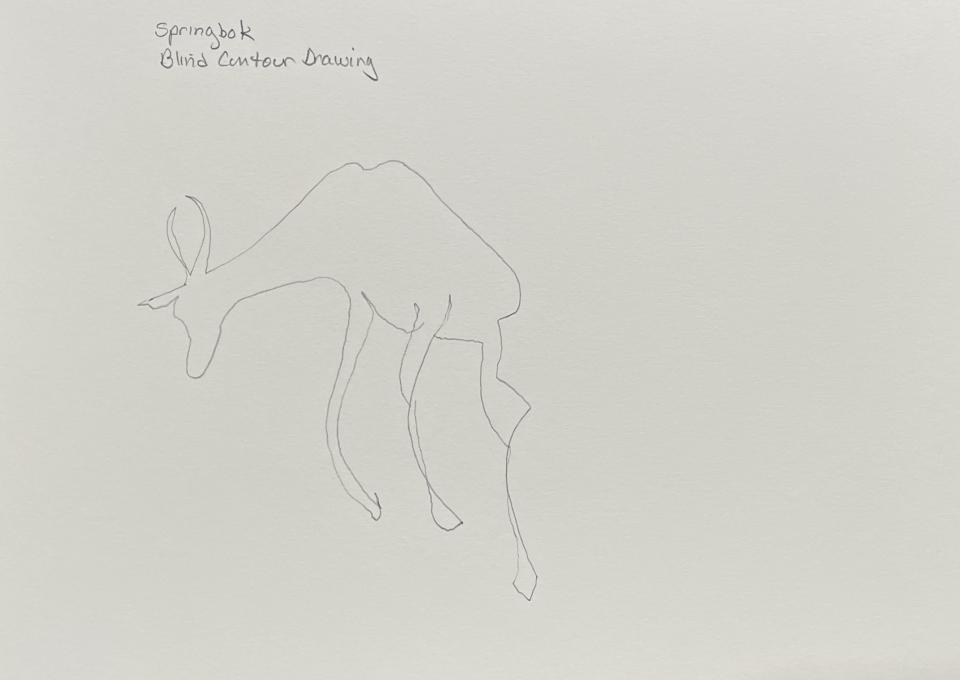
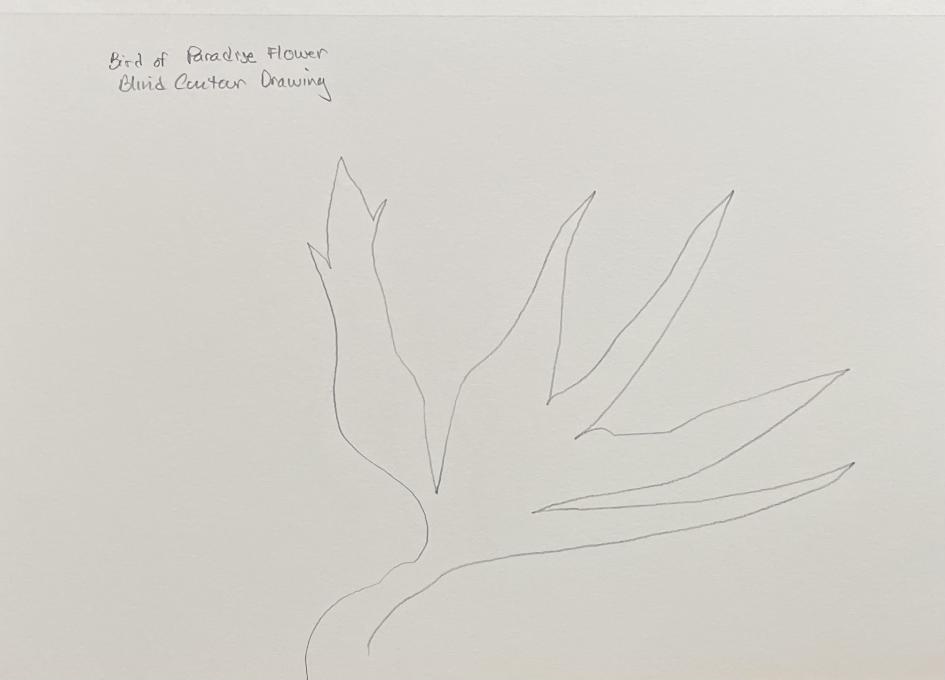
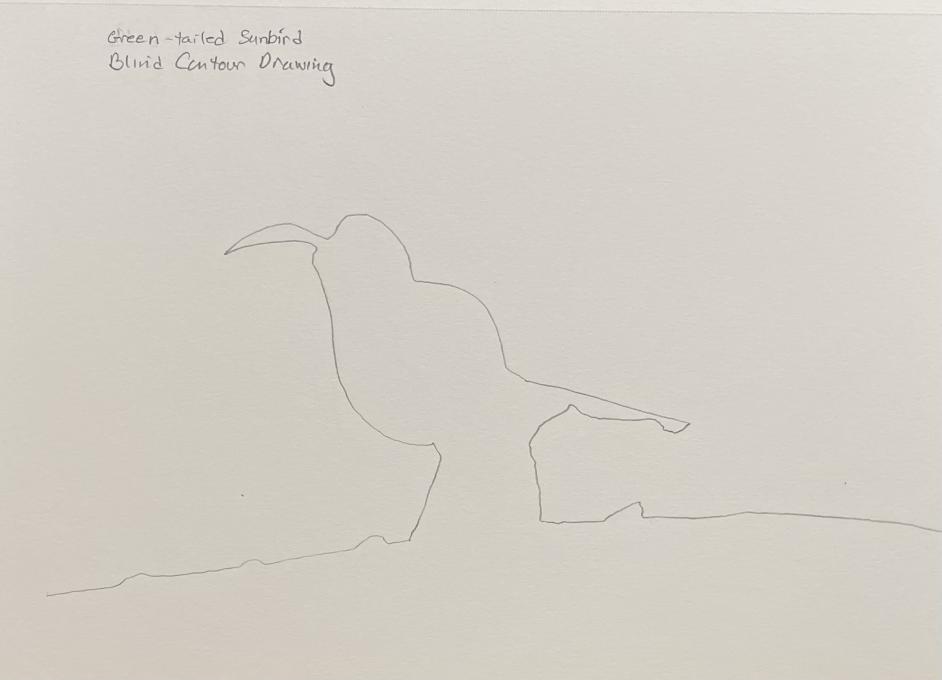
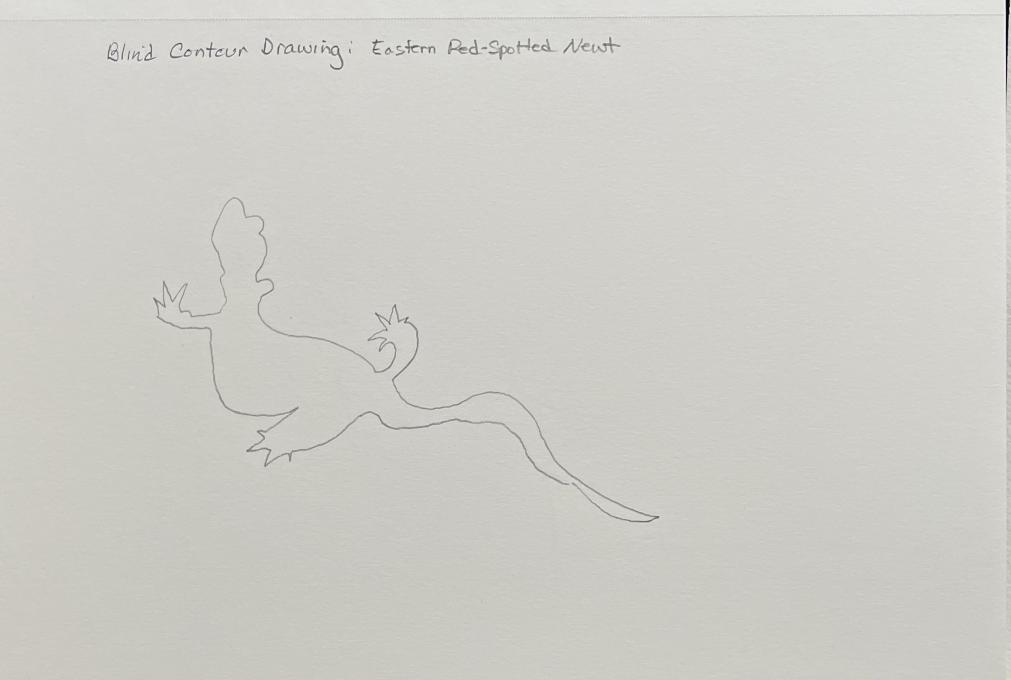
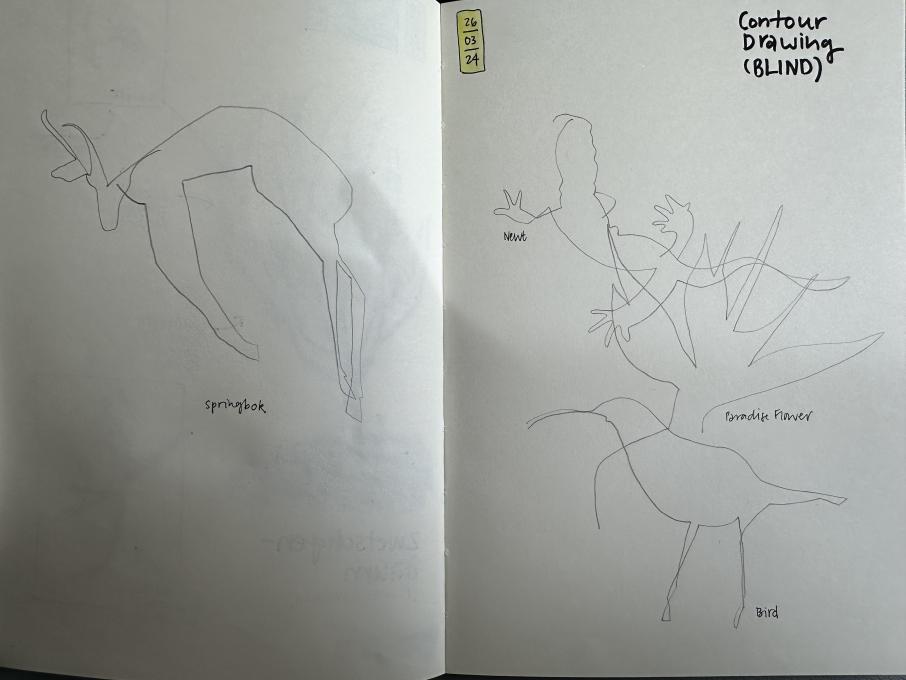
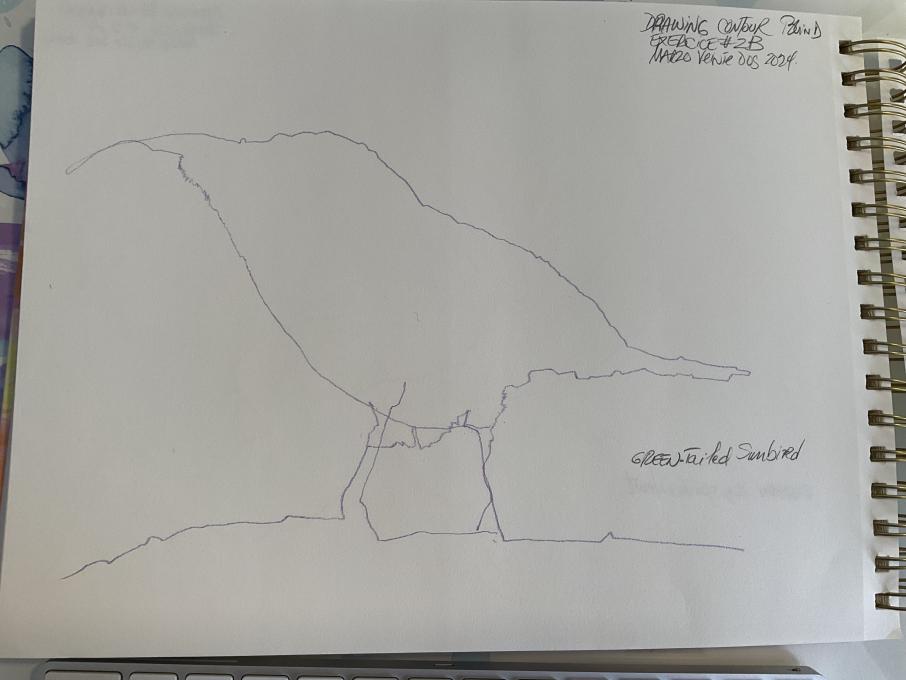
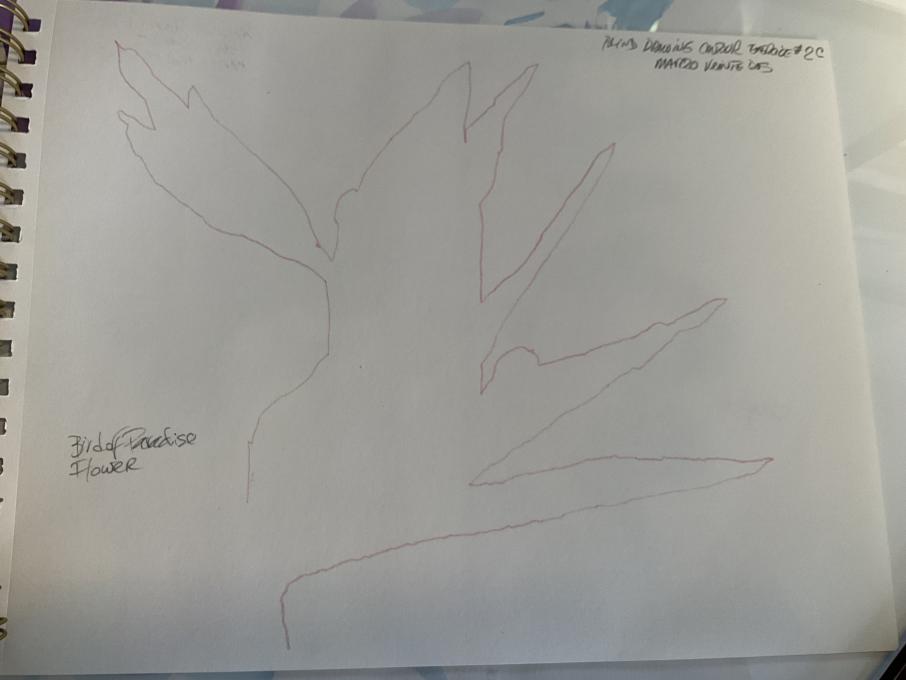
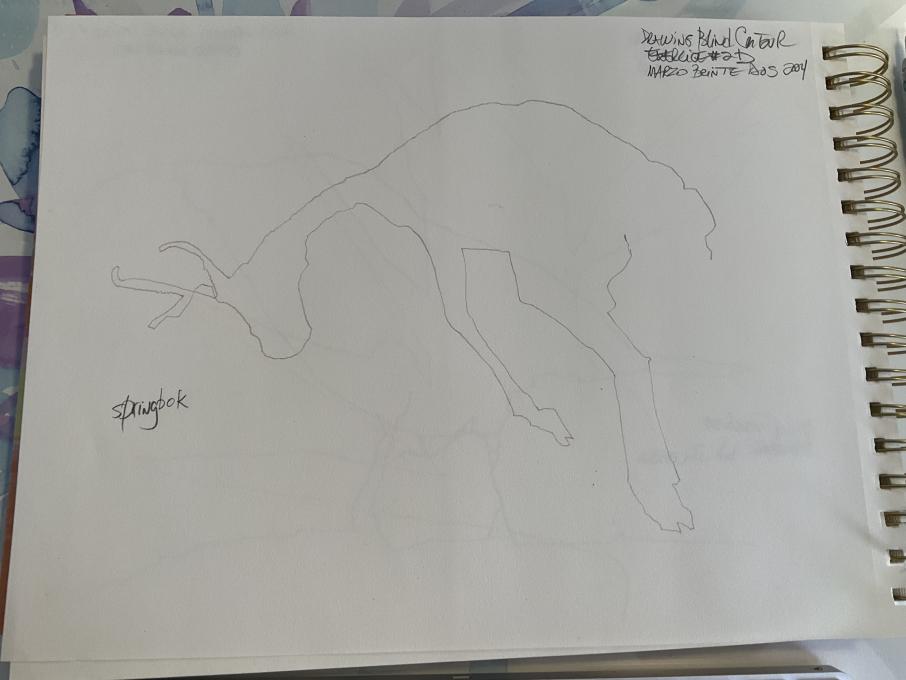
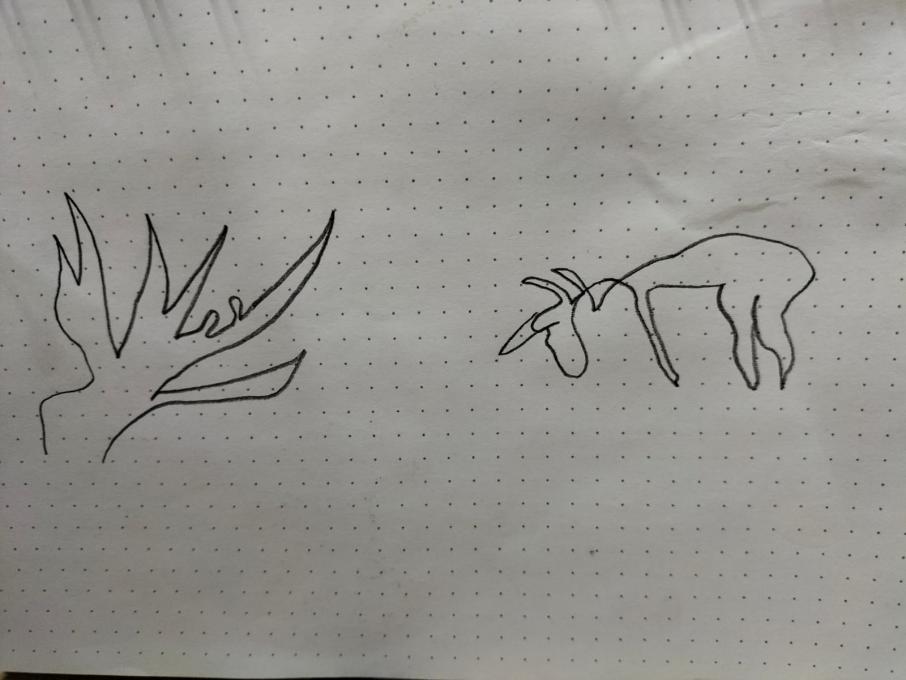
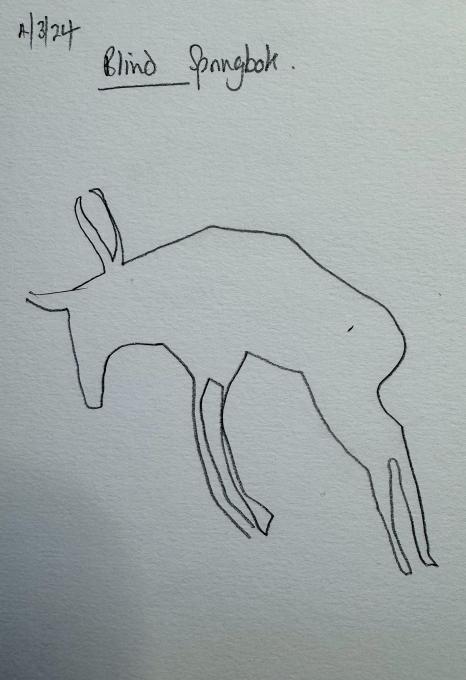 I was quite pleased with this.
I was quite pleased with this. 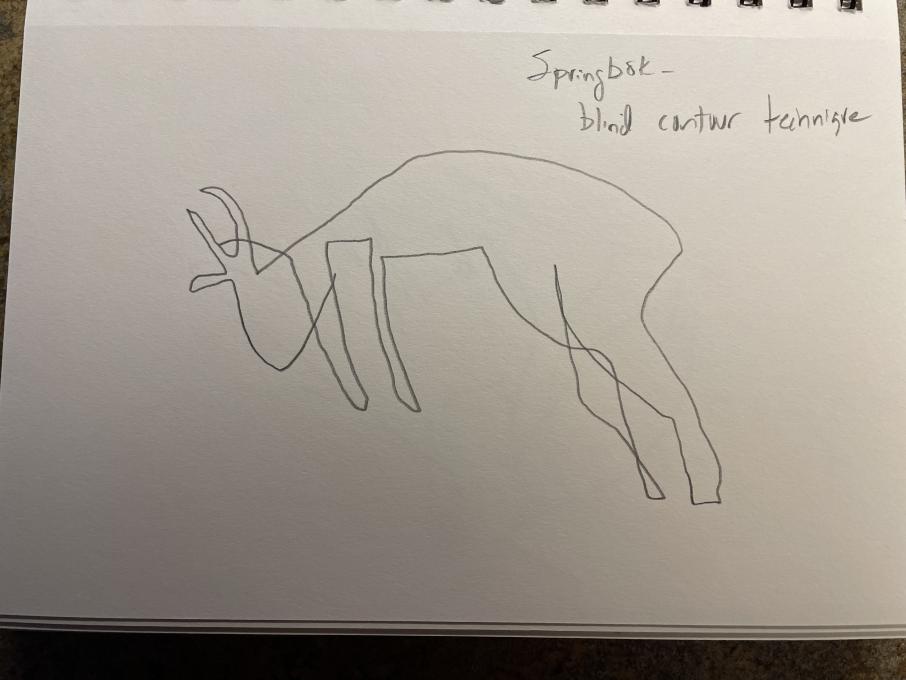
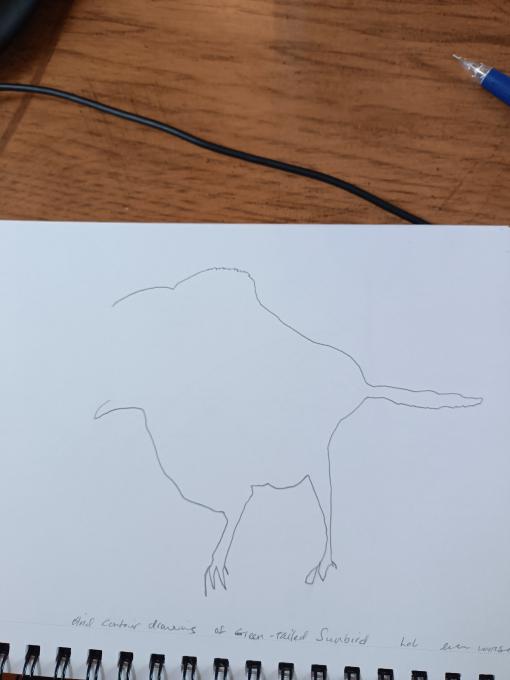
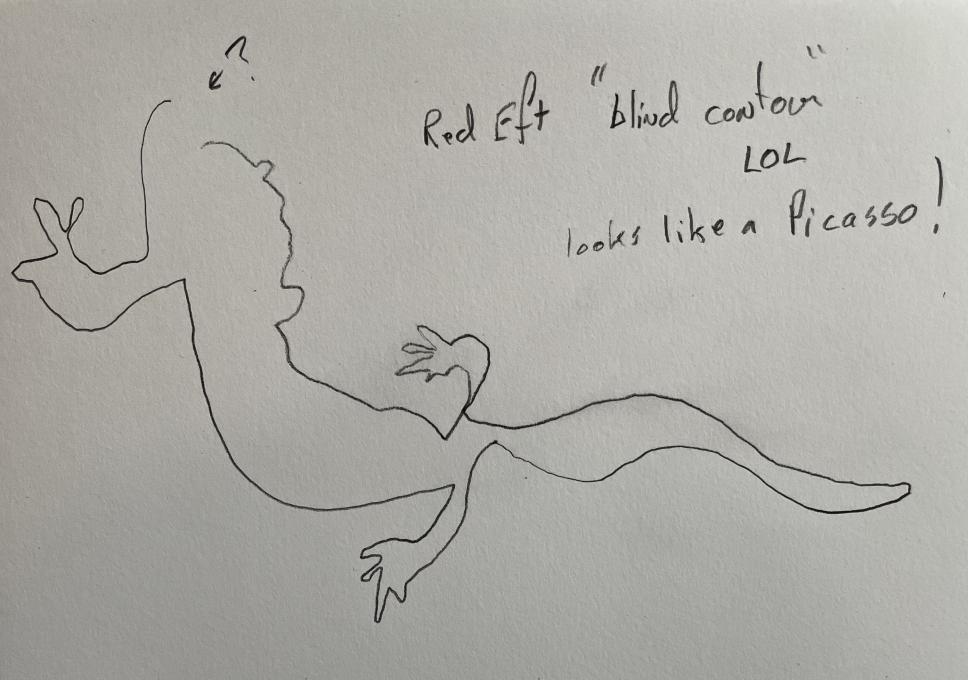
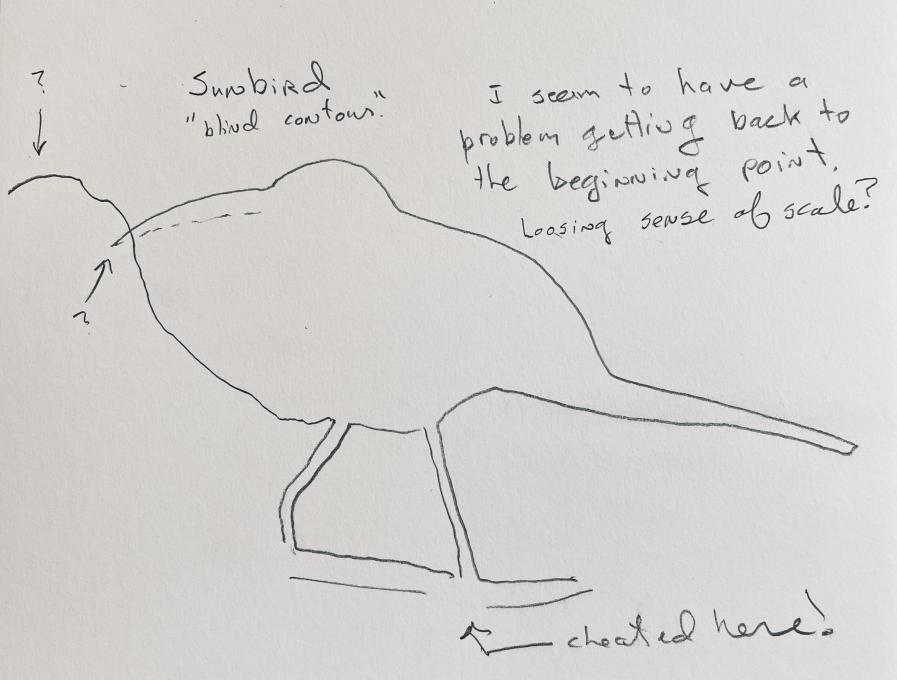
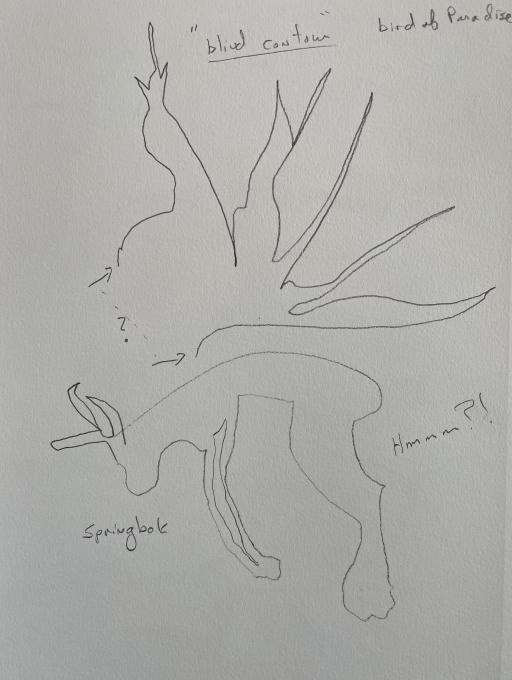
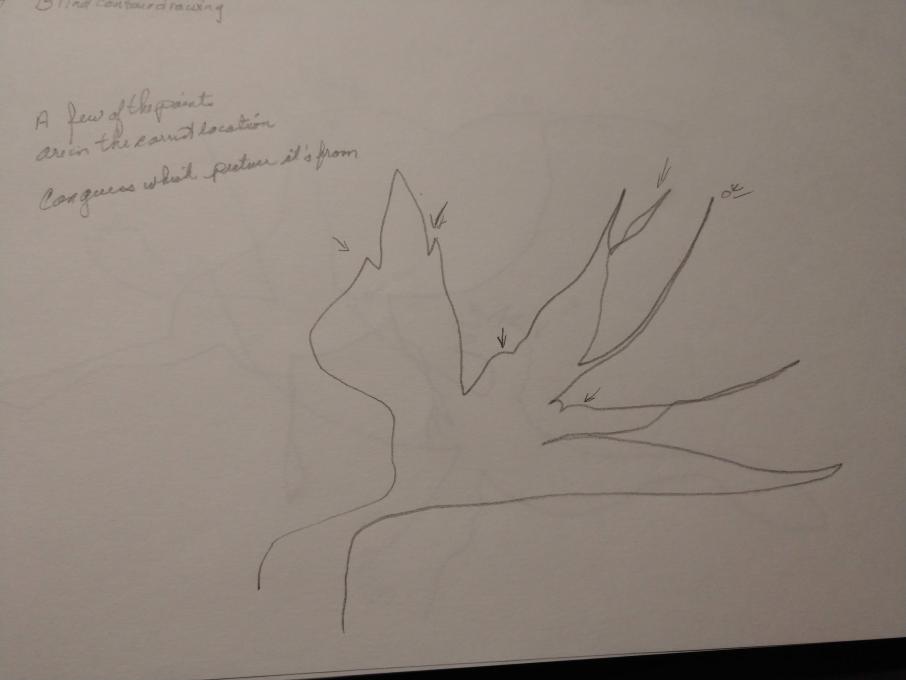
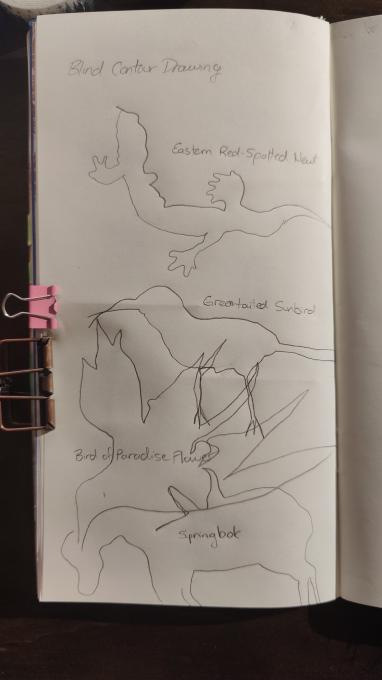
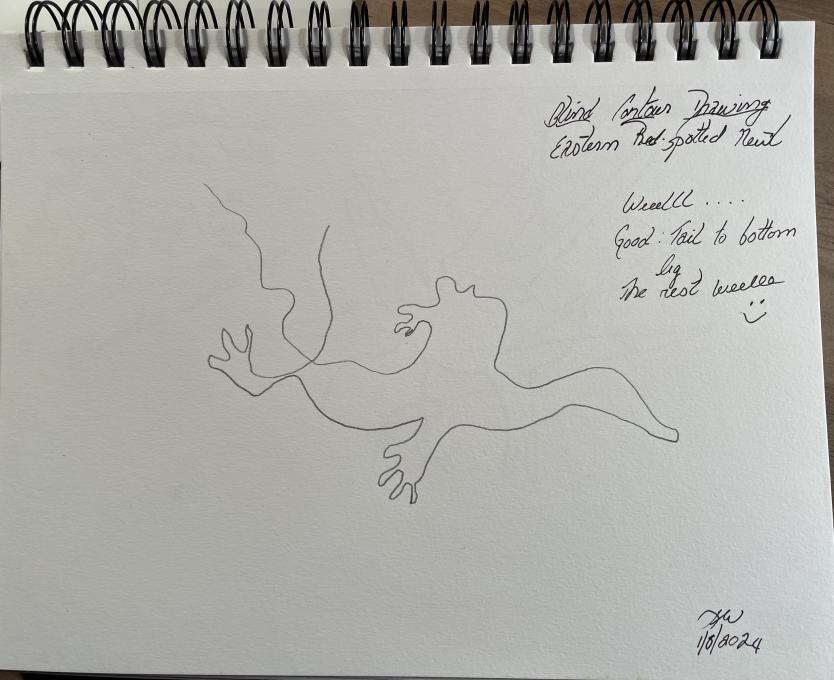
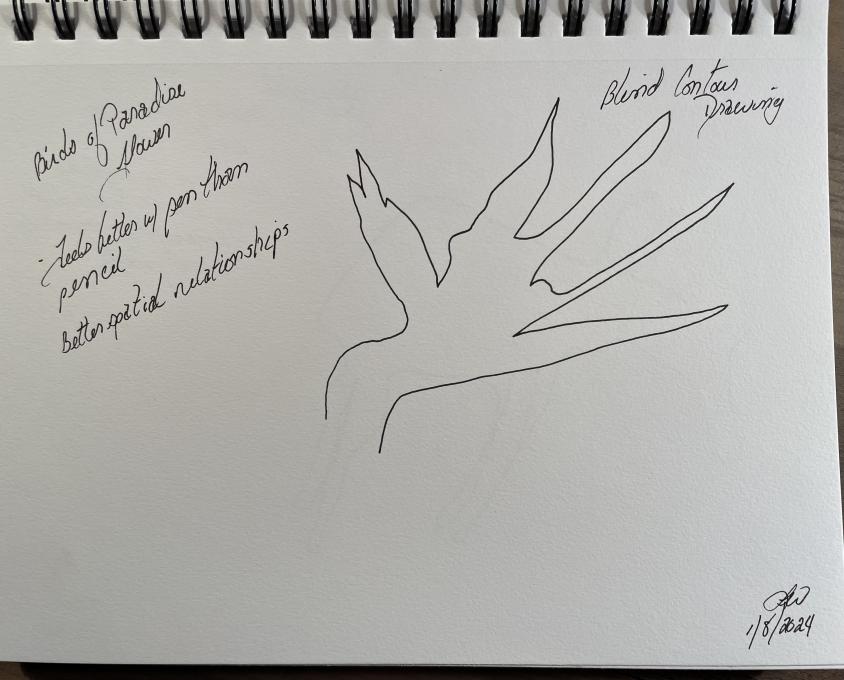
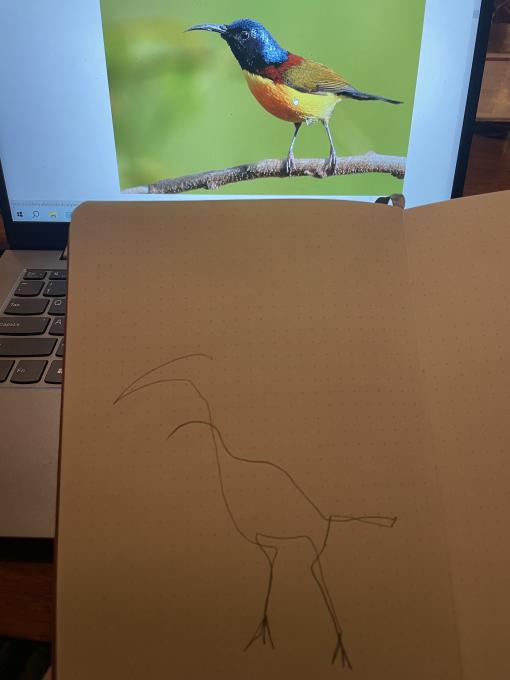
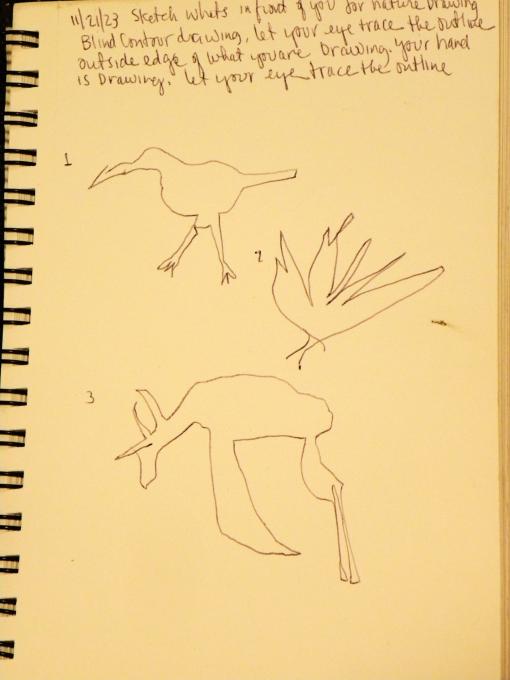 How interesting the results. Hey, this may have been the same techniques used in the cave paintings .(?) I like it for abstract drawing.
How interesting the results. Hey, this may have been the same techniques used in the cave paintings .(?) I like it for abstract drawing. 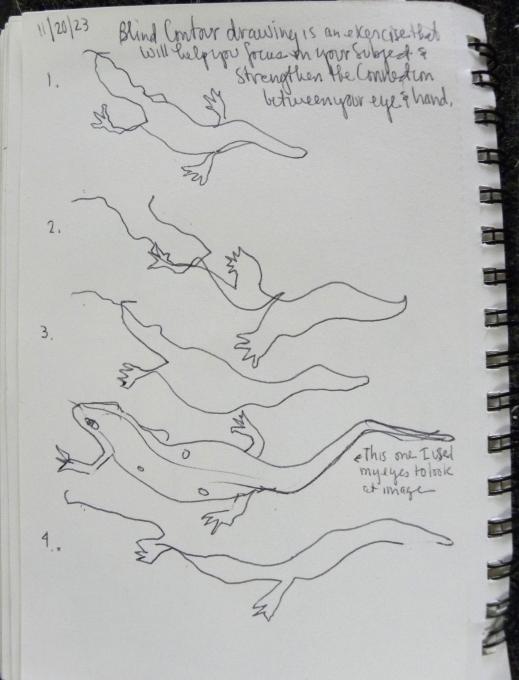 Oh boy. I made an Amoeba. This tasks was a bit challenging as I was not able to decipher the width of the animal I was drawing unto the paper. I was focused, but my lines did not connect.
Oh boy. I made an Amoeba. This tasks was a bit challenging as I was not able to decipher the width of the animal I was drawing unto the paper. I was focused, but my lines did not connect.